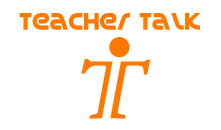Pages
Wednesday 28 April 2010
Monday 26 April 2010
Broadcast Sport- We Create Challenge
Here's another message from Ruth Mason
Senior Learning Design OfficerLearning Design and Services
Centre for Learning Innovation you shouldn't miss!!
Another term, another terrific opportunity for students to use ICT. Broadcast sport is the next WeCreate Challenge for 2010 and students have from 19 April until 3 May to upload their story to the Broadcast website
For this challenge students celebrate the sporting achievements of a team or individual in their school. They can also view those of other schools via the website’s Newsroom.
See some of the stories submitted during the first Broadcast challenge (Broadcast: News) by visiting the Newsroom
The Broadcast sport challenge is one of the WeCreate: Connected Learning Awards and the WeCreate challenges which are being conducted throughout 2010 and can be mapped across a range of curriculum areas.
For details of all the great WeCreate awards and challenges including a downloadable flyer.
Labels:
Broadcast_sport,
CLI K-12 WeCreate,
Innovation,
NSWDET
We Create: Digital Story Awards
Have you seen this message from:Ruth Mason
Senior Learning Design Officer
Senior Learning Design Officer
Learning Design and Services
Centre for Learning Innovation yet?Do your students enjoy storytelling?
Here’s a chance to combine words, images, music, sound and other media to tell a story of human migration. This award is a collaborative project between the Centre for Learning Innovation and the National Museum of Australia.
All entries must be submitted to the WeCreate: Digital Story Awards website by 6:00 pm AEST on 19 May 2010.
For full details of this competition go to http://www.cli.nsw.edu.au/
For promotional material you could display in your school click on the Digital Story Awards flyer.
For details of these great awards and challenges go to http://www.cli.nsw.edu.au/
Are the New Millennium Learners Making the Grade?
Organisation for Economic Co-operation and Development (OECD) releases a new report on technology use and educational performance in Programme for International Student Assessment (PISA) an international organisation helping governments tackle the economic, social and governance challenges of a globalised economy.. Australia is one of the 65 countries involved in the study.
Francesc Pedró
· OECD Centre for Educational Research and Innovation extends an invitation for you to have your say:
Dear all,
The OECD Centre for Educational Research and Innovation, in cooperation with the OECD Directorate for Science, Technology and Industry and with the support of the Norwegian Ministry of Education, has just released a new report on technology use and educational performance using PISA data.
The report Are the New Millennium Learners Making the Grade? analyses to what extent investments in technology enhance educational outcomes. One of the most striking findings of this study is that the digital divide in education goes beyond the issue of access to technology. A new second form of digital divide has been identified: the one existing between those who have the right competencies to benefit from computer use, and those who do not. These competencies and skills are closely linked to the economic, cultural and social capital of the student.
This finding has important implications for policy and practice. Governments should make an effort to clearly convey the message that computer use matters for the education of young people and do their best to engage teachers and schools in raising the frequency of computer use to a level that becomes relevant. If schools and teachers are really committed to the development of 21st century competencies, such an increase will happen naturally. And only in these circumstances will clear correlations between technology use and educational performance emerge.
As we have now started the preparations for a new edition using PISA 2009 data, your comments and suggestions for improvements will be extremely welcome.
Subscribe to:
Posts (Atom)
